- Home
- Patrick Logan
Shores of the Marrow Page 3
Shores of the Marrow Read online
Page 3
Chapter 6
“It was midday when the digger struck the object in the earth… whatever it was. And when it did, it started a collapse. The sand and digger and the two men operating it started to get sucked into the pit. Kinda like quicksand, you know? Anyway, the other five men came rushing, trying to help the workers who had somehow managed to climb out of the digger. But the sand was rushing too hard, too fast, sinking into the hole in the earth. The men on the sides of the pit threw ropes, threw anything and everything they could find. But the hole just kept getting bigger and bigger, until it eventually swallowed the two men and the digger whole.”
“What happened to them? The men?” Cal gasped.
Hank shook his head, the smile that had been on his face from the outset of the tale sliding off his acne-ridden face.
“The men who were sucked into the hole were as good as dead—the sand and gravel just kept piling on top of them, suffocating and crushing them. One of the other men jumped in and tried to save them, but he too was buried. The others ran to call the police. Only the police never came.”
“Who came?”
“At first, nobody. And then the men started to freak out. You see, the hole was still sucking in dirt, and many of the men were very religious, at least when it came to things like this. Anyways, they thought that maybe the entire earth was going to fall into that hole.” Hank shrugged. “I’m not really sure what they thought the cops might do if that were the case, but I’m guessing they just wanted the comfort of authority. Instead, they got the Mayor.”
“Mayor Partridge?”
Hank nodded.
“Yep—either he intercepted the police call, or maybe he had just paid off dispatch to let him know if and when any calls from the gravel pit came in. I mean, it was dangerous work back then, and with the pressure that the Mayor was putting on everyone to keep on digging, it was only a matter of time before an accident happened. And from a PR standpoint, the Mayor would have wanted to keep on top of these things. Especially with Father McCabe breathing down his neck.
“Anyways, when Mayor Partridge showed up, that’s when things got really weird.”
Cal scoffed.
“How can it—”
But Hank held up a hand, cutting him off.
“Trust me, it can and does gets stranger. For one, the men who fell into the hole?”
Cal nodded, picturing their mouths wide with screams before being chocked by thousands of pounds of sand and dirt and gravel.
“Well, the mayor came to the pit at least ten minutes after they had been buried.”
“Yeah? And?”
“And when he arrived, they just started to climb back out again.”
Hank let the word hang in the air like a foul smell. Eventually, Cal broke the silence.
“Wait… they climbed out again? I thought the sand was falling in…”
“No, you don’t get it. The men who climbed out again were dead already. They were fucking dead, Cal.”
Cal’s heart skipped a beat as he tried to comprehend what his friend was saying, now understanding why Stacey had said what she had. What had started as a history lesson of the town in which they lived, and the gravel pit that they frequented, had since degenerated into a zombie tale.
And yet there was something compelling about his friend’s words. Something that held Cal’s tongue when his first instinct was to tell Hank to fuck off, to stop talking bullshit.
“What—what do you mean they were dead?” he asked instead.
“They were dead. D-E-A-D. Shit, you can’t spend ten minutes or more buried over your head in sand and survive, Cal.”
“What if there was an air pocket, or something? I mean, the sand was spilling in.”
“They were dead, Cal. The story goes that they were fucked up looking when they came out, their eyes completely black. They crawled out of the pit, grabbed the other men and pulled them down with them. Except for Mayor Partridge—somehow the fat bastard managed to stay out of their way. Shit, he probably threw the men down into the pit as a sort of sacrifice to save his own hide.”
Cal blinked hard.
“They… they pulled them down?”
Hank nodded.
“Yep. Pulled them down with the rest of the sand that continued to pour in. Mayor Partridge would have gotten away completely, but then Father McCabe showed up. No one knows how he found out about the accident out at The Pit—maybe he just sensed it, you know? He was a priest after all. Maybe he got wind on the papal phone that a gateway had opened. Anyways, when he arrived, Mayor Partridge intercepted him. The priest could still see the men being dragged under the sand, the sunlight reflecting off their black eyes. He tried to perform an exorcism of sorts, right then and there. But Mayor Partridge was having none of it. He was still obsessed with the town, the money, the gambling, the whores. You know, all the fun things that came with The Pit. Some say that he would have just claimed it never happened, that the workers just abandoned the sight. But Father McCabe… he was a problem, one that wasn’t easy to solve.”
Hank paused to take another drink. Then he looked over his shoulder to The Pit.
“Have you ever been here when it rains?” he asked absently.
The question took Cal by surprise, and he had to think about it for a moment before answering.
“Yeah, I guess. I mean, we used to come here all the time as kids. I’m sure it rained sometimes.”
Hank shook his head.
“No, I mean when it’s really pouring. Like tsunami-style rain.”
Cal couldn’t remember, and he said as much.
Hank brought the bottle to his lips again and swallowed long and hard.
“I have,” he said, all the humor gone from his voice. “I’ve been here when it’s really pouring. And I tell you, the water does some weird shit down there at the bottom of The Pit. It starts to froth and foam, kinda like a tiny sea, you know? A mini ocean.”
Cal had no fucking clue what Hank was talking about.
He shook his head.
“Wait—what happened to the Mayor and the priest?”
Hank shuddered and with a groan, he stood.
“Mayor Partridge threw him into The Pit with the others. No amount of prayers could save him—like the seven workers that day, Father McCabe suffocated on the sand. Or at least, that’s how the story goes. None of the bodies were ever found.”
“None of them?”
Hank grimaced.
“None of them,” he confirmed.
“What about Mayor Partridge? The sand pit? Did it stop falling in?”
“No one has heard form Mayor Partridge since,” Hank cast his arm over The Pit, turning his back to Cal. “As for The Pit? Some say that Hell was satisfied that day, that enough bodies fell into Satan’s mouth to fill his belly for a time.”
Hank took another pull from the bottle, finishing the last drop. Then he reared back and threw it as far as he could into the gravel pit.
“Hank! What—”
“But you know what I think, Cal? I think that it’s only a matter of time before the gates to Hell open once again. And I want to be as far away as possible when that happens.”
Chapter 7
The whiskey was gone, and Hank and Cal shared the final cigarette in silence.
Cal didn’t—couldn’t—believe the story, but as he stared out over The Pit, his mind started to superimpose images of the workers being sucked down into the hole, of Mayor Partridge in his three-piece tossing Father McCabe to his death.
He couldn’t believe the story, but that didn’t stop him from thinking about a priest and a Mayor at odds with the way that Mooreshead was being commandeered by greed and sin. Of digging too deep. Of eight men dead, and one missing.
Of a frothy, gateway to Hell.
His heart was racing.
This wasn’t the Mooreshead that he knew. This wasn’t anything like the Mooreshead that he knew.
Hank’s story wasn’t true, of course, but that didn’
t matter so much to Cal. Or maybe it wasn’t all true. But Cal knew that with stories, even urban legends such as this one, beneath the layers of lies and exaggerations, there was always some truth buried beneath. Sometimes you had to dig as deep as they had in The Pit, but with enough hard work, you could unearth the truth.
And even if it had all just been a feud between the Mayor and a man of the cloth, well, that was more excitement than he could have even fathomed for Mooreshead, which was boring with a capital B.
Cal was going to dig alright, and like the men in the pit, he was going to keep on going, with or without the staunch encouragement of a fancy dressing mayor.
A smile crossed his round face.
***
“How was school today, Cal?” his mother asked from across the table.
“Fine,” Cal replied quickly, shoveling another forkful of pasta into his mouth. Every time he lied, he knew that he started to ramble and couldn’t help himself.
Filling his mouth seemed to be the best way to keep quiet.
He was fifteen, going on sixteen, and next year he would move out. He had saved up some money working at the local hardware store, and based on his waning attention and less than stellar attendance record, college was out of the question. Even if he had been a straight A student, however, he wasn’t interested; the last thing that he wanted to do was go to a three-hundred-year old institution that taught the same shit year in and year out.
The idea rivaled even Mooreshead boredom.
Except…
Cal swallowed his bolus of pasta.
“Hey Dad, you ever hear about a feud between the Mayor and a Priest?”
David Godfrey didn’t even look up from his plate. A soft-spoken man with a copper-colored mustache and thinning hair, David was a man of few words. He was a good father, Cal supposed, but by God was he boring.
“Mayor? Of Mooreshead?”
“Yeah, a while back. Like in the seventies, maybe.”
David took a sip of his beer.
“Only Mayor I know is Mayor Turnbull. Been the Mayor for as long as I can remember.”
Cal made a face, but his father’s answer didn’t come as a surprise. Like everything about his family, about Mooreshead, it was predictable.
He turned to his mother next.
“Mom? What about you?”
She hesitated before answering. It lasted only long enough to twitch, but it wasn’t like his mother not to answer immediately. Regardless of the query, she always shot back an answer; she was confident, if occasionally ill-informed.
“No.”
Cal stared at her for a moment, and for once she was the one to look away first.
She’s lying.
Still, his mother was a tough nut to crack. Lying or not, he could tell by the way her lips were pressed together that he wasn’t going to get any more out of her.
Cal turned back to his father, who was slowly twirling his fork into his spaghetti.
“What about the gravel pit, Dad? You ever hear anything about the gravel pit?”
David Godfrey’s eyes shot up.
“What gravel pit?”
“You know the old Forrester Gravel Pit behind Mr. Willingham’s farm? Just south of Kinkairn?”
David stopped twirling his fork, and his eyes darkened.
“I told you not to go up there.”
Cal recoiled.
“No, you didn’t. You said I should probably steer clear—”
“Yes, I did. Cal, that place is… is…”
Cal leaned forward now, squinting.
“Is what?”
David lowered his gaze and started twirling his fork again.
“Nothing. You just shouldn’t be up there.”
“Why not?”
It was his mother who answered.
“Cal, just leave it alone. It’s dangerous up there.”
“Dangerous? I used to go up there all the time as a kid. It’s a fucking abandoned gravel pit. What’s so dangerous about it?”
“Watch your language, son.”
Cal dropped his fork, and it clanged loudly on his porcelain plate.
“Aw shucks, dad. I’m not seven anymore. I’m fifteen. And next year, I’ll be out of this place.”
The words came out of his mouth in such a flurry that he was unable to stop them. His throat was hoarse from all the cigarettes, and he wasn’t convinced that the whiskey he had drunk pretty much all day was out of his system yet.
“Cal? What do you mean, you’re out of this place? We’ve talked about this.”
He looked at his mother’s sad eyes, but instead of feeling guilty, for some reason her expression infuriated him even further.
“What? Can’t I even ask a question around here? Have an opinion about something?” he stood quickly, nearly toppling his chair behind him. “Fuck it, I’m going to bed. See you in the morning.”
And then he left the kitchen, his ears getting hot. But Cal didn’t even make it upstairs before the nagging feeling of guilt about the way that he acted started to eat at him.
It wasn’t his parents’ fault. They were good people. Boring, predictable, but essentially good. Good to him, good to each other.
But then Cal thought of Hank’s story and his parent’s strange reaction to his questions, and the guilt suddenly started to fade.
Chapter 8
Cal didn’t go to school the next day either. But instead of meeting up with Hank and Brent, he purposefully avoided their usual meeting spot. A little birdie had told him that Stacey was attending class that day, as her parents had found out that they had skipped the day before. It was only by some miracle that Stacey’s parents hadn’t reached out to his own.
Although he wanted to see Stacey again—he always wanted to see Stacey—he was grateful that she wasn’t around. She would be a distraction, and today he was on a mission.
Cal headed deeper into town, away from The Pit, bowing his head to avoid being noticed by any of his mother’s friends who spent their days shopping. He wasn’t interested in any of the shops or restaurants, despite the fact that his stomach was already grumbling; instead, Cal went to the only place that he hated more than school.
He went to the library.
Mooreshead’s single library stood pretty much in the direct center of town. Cal remembered hearing somewhere—history class, maybe—that it had been erected on the day that the town was founded, nearly sixty years earlier, as a sort of corner stone of the community.
That and the church, of course.
Looking up at the brick structure, complete with cracks that ran deep into the foundation and a massive clock tower that hadn’t moved or chimed since… well, since ever, Cal couldn’t help but scowl.
Boring, boring, boring, boring…
Glancing around, equally concerned now that he would be spotted by one of his mother’s friends as one of his own, Cal slunk even lower into the collar of his shirt until he resembled a bipedal tortoise. Then he slinked up the marble steps to the front door, gave a final, cursory look, and then pulled it wide and slipped inside.
Twice he had been in the library: the first time he was just a young boy, seven, maybe eight years old, and his mother had dragged him to the place in search of a recipe of all things. The second time had been a few years back as part of a class outing.
A visit to the local library qualified as a field trip in Mooreshead, permission slips and all.
Now, on this third occasion, Cal wasn’t at all surprised that it was exactly the way he remembered it: reeking of wet wood, dust motes as large as bumblebees clouding his vision.
And dark. Jesus, the damn place was so dark that Cal would have had a hard time finding his pecker if he had to piss. Hank said that the reason why it was so dark had to do with the type of wiring in the ancient building—knob and tube, or something—that couldn’t handle the light bulbs of today.
If the Pit was still open, there would be plenty of money to upgrade the wiring, he thought incomprehensibly
.
Clearing the dust from in front of his face by waving a hand, he looked around while he waited for his eyes to adjust to the dim lighting.
Predictably, the library’s only patrons were the long dead authors of the books that lined the walls and ascended to the ceiling, nearly twenty feet above. The thick desks were all unoccupied, their wooden surfaces so reflective that they appeared to have been lacquered that very morning.
Nary a fingerprint in sight, let alone another human.
Cal cleared his throat as his eyes wandered up the walls of books. Unlike other libraries that he had seen on TV, the practical ones, there were no metal racks arranged in rows that housed alphabetically organized books, making it easy to find what you were looking for. Instead, in Mooreshead Library, the books lined the perimeter walls, each of which made up about thirty feet of the perfect square. There was a ladder on a track that he remembered from previous visits squeaked like a maimed mouse as it slid all the way around the room. Toward the back, there was a single desk with a green lamp on it. The surface was completely void of anything—a pen, paper, book—save a shining silver bell.
Cal refused to ring the bell. There was one outside the Principal’s office, and if the secretary wasn’t there, you had to ring it to let Mr. Malhorn know you’d arrived. He would then wait for a minute or two to give the pretense of being busy before coming out of his office, a stupid, smug smile on his face.
The only reason Cal went to the office was when he was ordered there by one of his teachers, so for him the sound of the bell had a sort of Pavlovian implication.
No, he definitely didn’t want to ring the bell.
And yet the idea of searching through the floor to ceiling rows of books for some obscure facts—or fictions, Hank’s story was about ninety-percent bullshit—about Mooreshead history was even more appalling to him. Making up his mind, Cal strode over to the desk and peered over the other side, hoping that the librarian was, for no reason whatsoever, sitting on the floor.

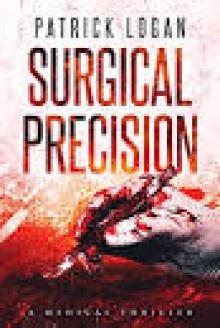 Surgical Precision
Surgical Precision Detective Damien Drake series Box Set 1
Detective Damien Drake series Box Set 1 Drug Lord- Part I
Drug Lord- Part I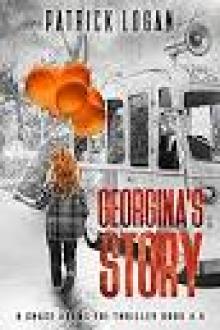 Georgina's Story
Georgina's Story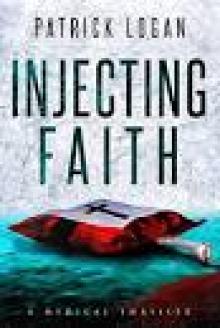 Injecting Faith
Injecting Faith Drug Lord- Part II
Drug Lord- Part II Dirty Money (A Chase Adams FBI Thriller Book 5)
Dirty Money (A Chase Adams FBI Thriller Book 5) Detective Damien Drake series Box Set 2
Detective Damien Drake series Box Set 2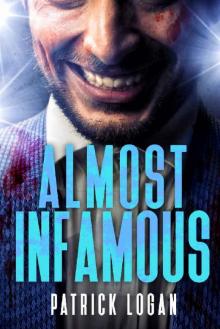 Almost Infamous (Detective Damien Drake Book 9)
Almost Infamous (Detective Damien Drake Book 9)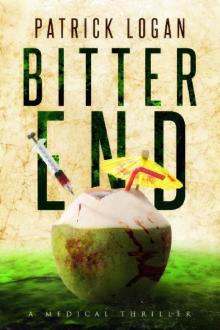 Bitter End
Bitter End Shadow Suspect
Shadow Suspect Witch
Witch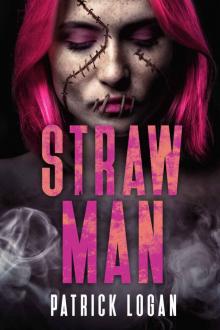 Straw Man
Straw Man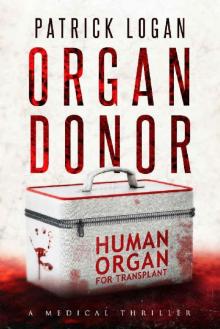 Organ Donor: A Medical Thriller (Dr. Beckett Campbell, Medical Examiner Book 1)
Organ Donor: A Medical Thriller (Dr. Beckett Campbell, Medical Examiner Book 1)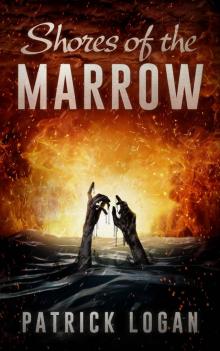 Shores of the Marrow
Shores of the Marrow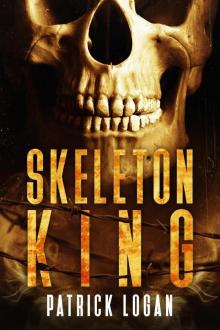 Skeleton King
Skeleton King Insatiable Series Omnibus Edition (Books 1-3)
Insatiable Series Omnibus Edition (Books 1-3) Download Murder
Download Murder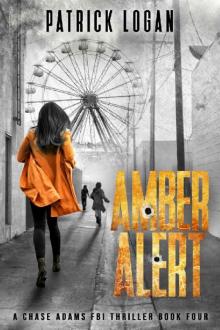 Amber Alert
Amber Alert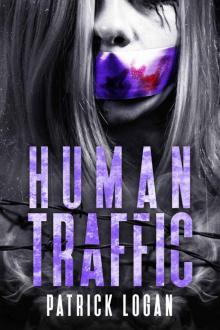 Human Traffic
Human Traffic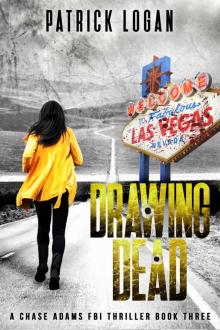 Drawing Dead (A Chase Adams FBI Thriller Book 3)
Drawing Dead (A Chase Adams FBI Thriller Book 3)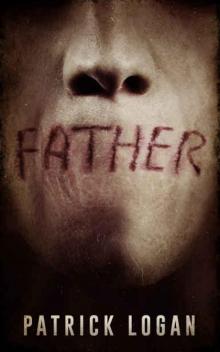 Father
Father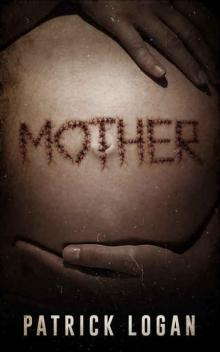 Mother
Mother Butterfly Kisses
Butterfly Kisses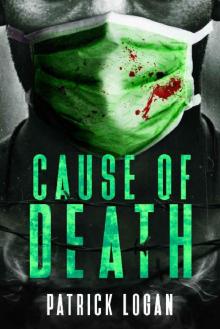 Cause of Death
Cause of Death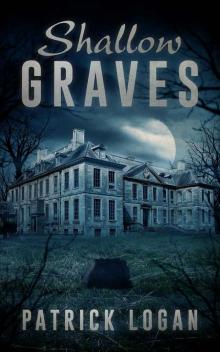 Shallow Graves (The Haunted Book 1)
Shallow Graves (The Haunted Book 1) Daughter (Family Values Trilogy Book 3)
Daughter (Family Values Trilogy Book 3)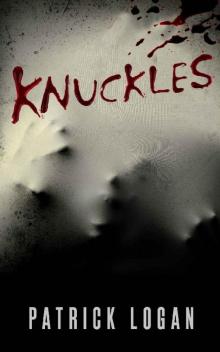 Knuckles
Knuckles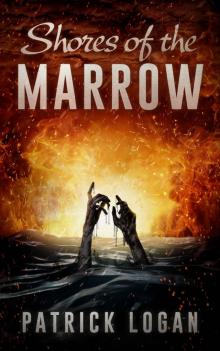 Shores of the Marrow (The Haunted Book 6)
Shores of the Marrow (The Haunted Book 6)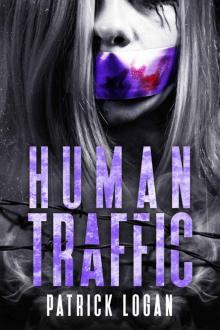 Human Traffic (Detective Damien Drake Book 5)
Human Traffic (Detective Damien Drake Book 5)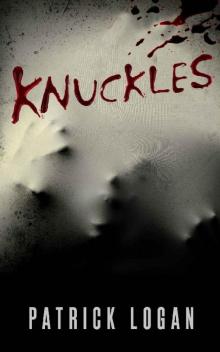 Knuckles (Insatiable Series Book 4.5)
Knuckles (Insatiable Series Book 4.5) Stitches (Insatiable Series Book 5)
Stitches (Insatiable Series Book 5)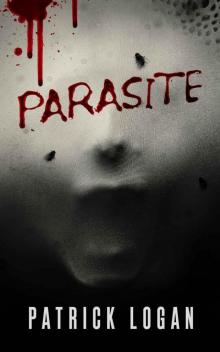 Parasite
Parasite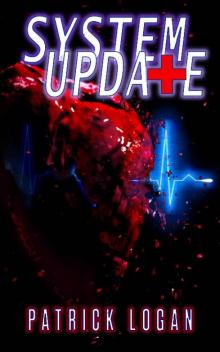 System Update
System Update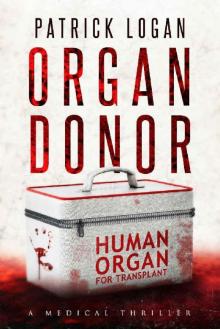 Organ Donor_A Medical Thriller
Organ Donor_A Medical Thriller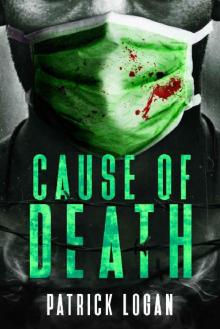 Cause of Death (Detective Damien Drake Book 2)
Cause of Death (Detective Damien Drake Book 2) Daughter
Daughter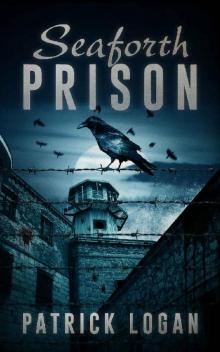 Seaforth Prison (The Haunted Book 3)
Seaforth Prison (The Haunted Book 3)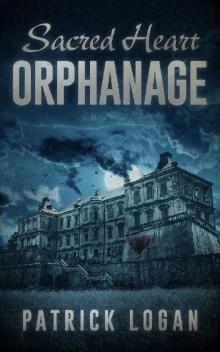 Sacred Heart Orphanage (The Haunted Book 5)
Sacred Heart Orphanage (The Haunted Book 5) Frozen Stiff
Frozen Stiff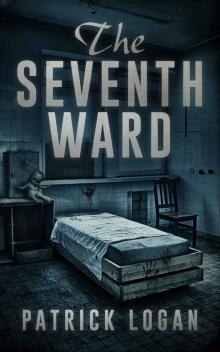 The Seventh Ward (The Haunted Book 2)
The Seventh Ward (The Haunted Book 2) Drawing Dead
Drawing Dead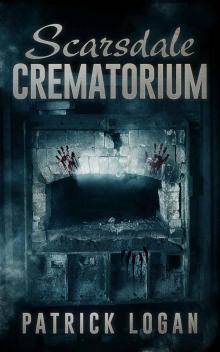 Scarsdale Crematorium (The Haunted Book 4)
Scarsdale Crematorium (The Haunted Book 4)